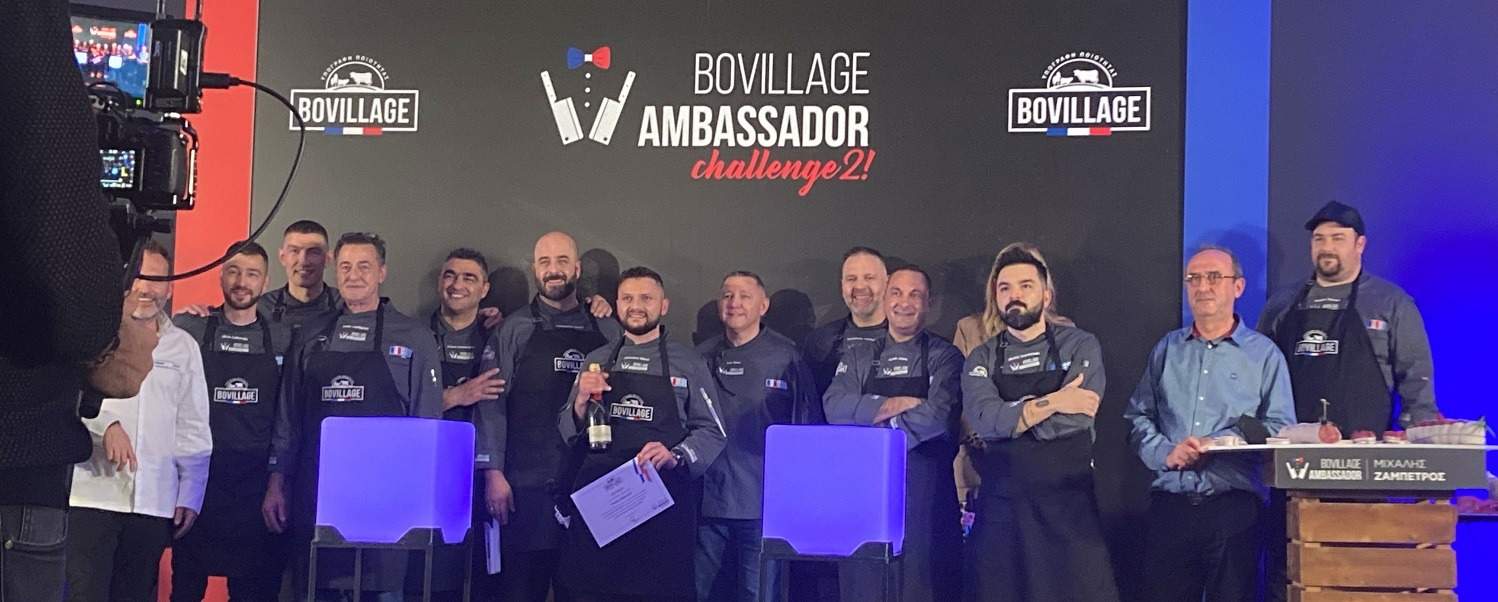For the past 10 years, Bovillage has been promoting French beef in Greece – successfully, because 94% of Greek professionals now trust the brand and see it as a sign of quality.
The collective brand Bovillage was created in 2010 by “Interbev,” the Inter-Professional Organization for Livestock and Meat, to promote French beef in Greece. Twelve years later, it is getting a whole new, more youthful look. Alongside the creation of a new logo and a new corporate identity, Interbev has recruited ten Greek butchers as ambassadors to embody the brand and get its message out. Traditional butchers are key players in Greece, because they account for 70% of meat sales there.
The brand’s highly active representatives frequently organize events that bring professionals from the sector together. The most recent one, Bovillage Meating Day, took place in Athens in early December. On the schedule: a seminar for butchering and showcasing meat, a competition, a festive evening and more.
“The event was very successful, in terms of both quality and quantity, and it allowed Bovillage to consolidate its leading position on the Greek market after a period of absence due to the pandemic,” Claudine Allain, head of Interbev’s international communication, explained.
- A Brand that Is Endorsed by Professionals
It must be said that in just over ten years, Bovillage has acquired an excellent reputation in the country. “According to our latest barometer, 94% of Greek professionals surveyed expressed confidence in the brand; and for 96% of them, it is synonymous with high quality,” boasts Marc Pagès, COO of Interbev. “Above and beyond those promises, Bovillage is now a vehicle for concepts like trust, reliability, and excellence in the eyes of Greek professionals.” Proof of that confidence, in 2021, France kept its place as Greece’s leading supplier of beef, with a 34% market share, well ahead of Spain (14%) and Poland (8%).[1]
“Our meat is endorsed by professionals, who recognize its quality,” Claudine Allain emphasizes. “We export meat from young beef cattle, meaning from breeds selected specifically for meat production. Our farming methods meet high standards, such as livestock being fed 90% on grass or on fodder that is grown on the farm where they are raised.”
The brand’s new challenge is to achieve recognition among consumers. The stakes are high, because Greece is France’s third-largest export market, after Italy and Germany. So in 2020, Interbev started organizing communication operations in partner butcher shops.
[1] Source: Interbev
